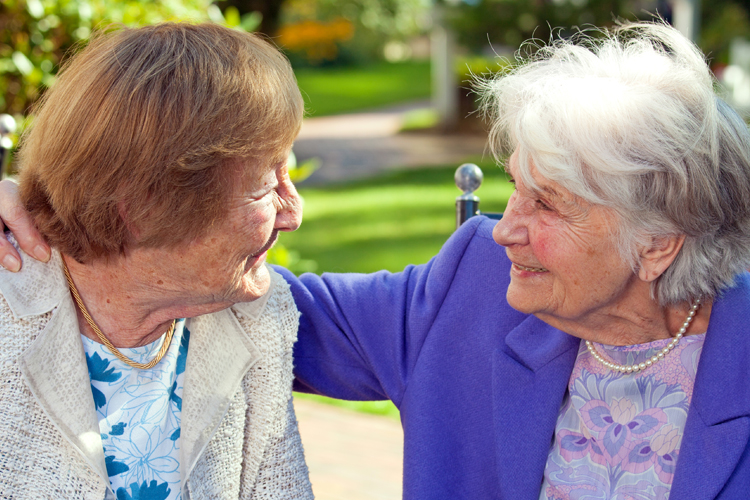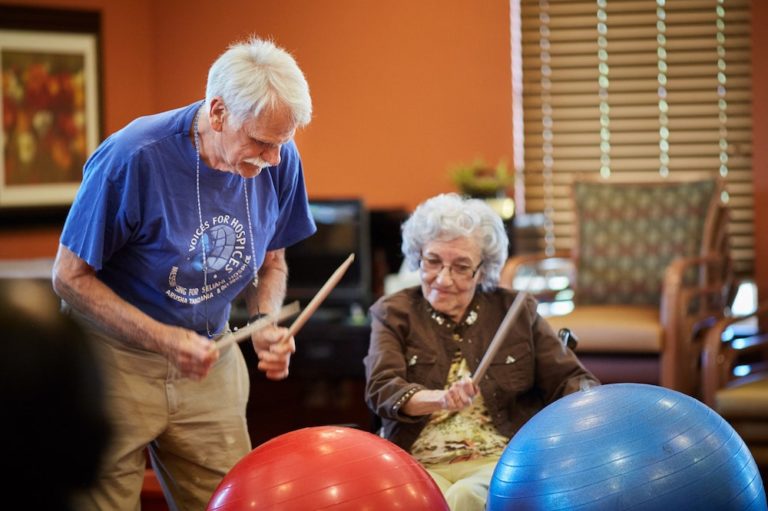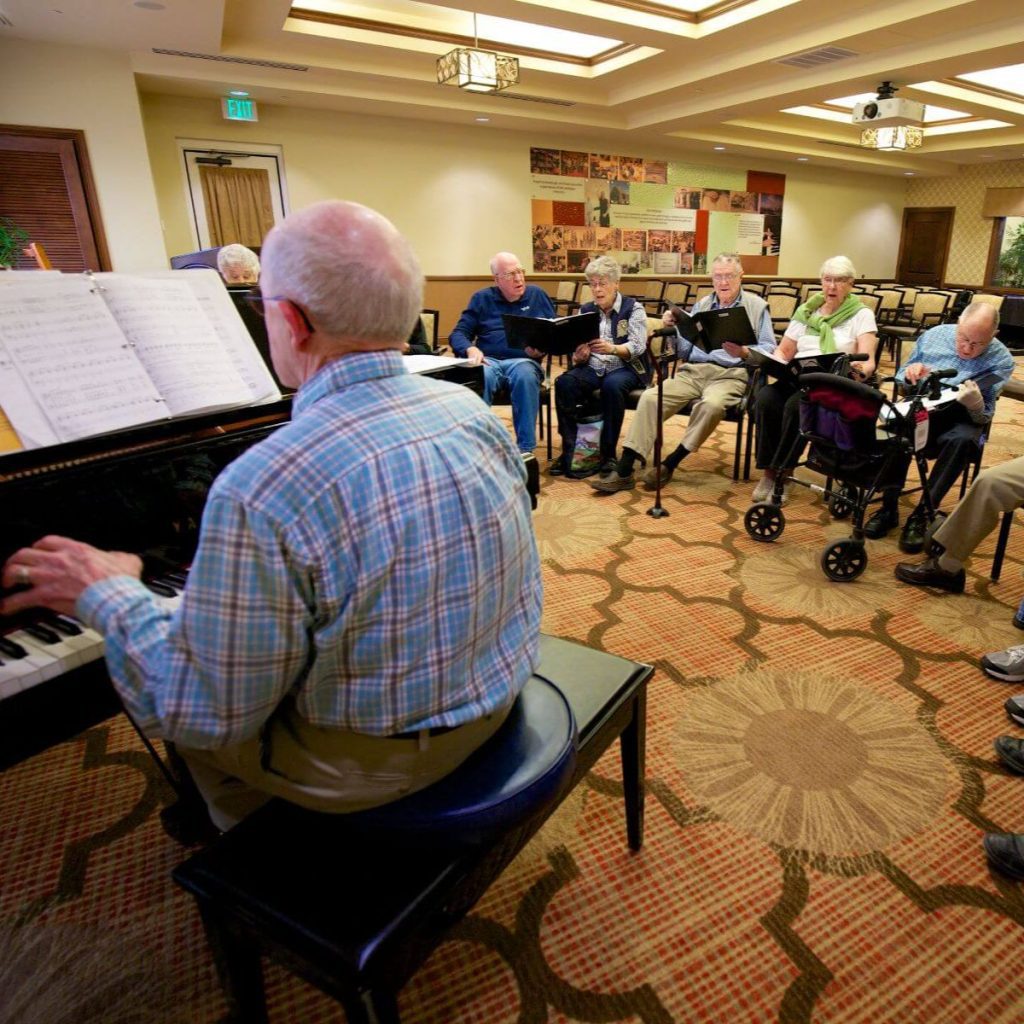A skilled nursing community and a skilled nursing facility are both types of care settings. They provide medical and nursing care to individuals who require a higher level of care than what can be provided at home or in an assisted living environment. Both provide medical and rehabilitative care to individuals with more complex medical needs requiring round-the-clock skilled nursing care. They are often associated with short-term rehabilitation stays following hospitalization for surgeries, injuries, or acute medical conditions.
A place that labels itself as a “skilled nursing facility” may lean toward a more institutional and conventional method of delivering medical care. A true “skilled nursing community,” however, embraces a more holistic philosophy of care, prioritizing the overall well-being of every resident. Within this community, each individual has autonomy and actively participates in shaping their care, goals, and community as a whole. The skilled nursing community honors the preferences and contributions of each resident.

Why we say “skilled nursing community” versus “skilled nursing facility”
Can you envision your life in a skilled nursing facility? It certainly doesn’t sound pleasant. Facilities symbolize sterile establishments that are not assumed to embrace one’s humanity and spirit. So why do we use such an unfavorable term to depict the places where older individuals live and obtain care? This term does a disservice to both residents and staff, yet it is widely and casually used in conversations about senior living.
Here are some other reasons why we prefer “community” over “facility” at Clermont Park:
- Truer representation of community life. The term “community” carries a more positive and welcoming connotation compared to “facility,” which can sound clinical and institutional. “Community” reflects a sense of belonging, social interaction, and support, which better aligns with the experiences of residents, family members, and team members.
- Emphasis on relationships. Skilled nursing communities focus on providing quality care while also supporting whole-person well-being by fostering relationships and social connections among residents and team members. Using “community” underscores the idea that residents are part of a more extensive social network where they have a voice and influence among neighbors and team members.
- Quality of life. The term “community” emphasizes that skilled nursing is not just about receiving care but also about maintaining a good quality of life. It refers to an environment where residents can continue to participate in activities they love, maintain their independence, and enjoy a fulfilling lifestyle.
- Dignity and respect. Using “community” emphasizes the dignity and respect that residents deserve. The term “skilled nursing facility” might imply a more institutional setting, while “community” conveys that this is home.
- Changing perspectives. Over the years, there has been a shift in how society views aging and long-term care. The term “facility” might harken back to a more institutional model of care, whereas the term “community” aligns with contemporary attitudes toward aging that prioritize autonomy, engagement, and continuous growth.

Skilled nursing communities’ focus on resident-centered culture
The word “community” also aligns with the Christian Living Communities Citizenship Model: a perspective that promotes empowerment and positivity toward all ages. This philosophy is built upon the core belief that individuals of all ages and abilities possess unique gifts, passions, talents, and experiences that contribute to the strength and improvement of the community. By embracing an active role as citizens within their communities, people gain influence, significance, autonomy, a sense of belonging, and enhanced well-being.
Residents, team members, family members, and vendor partners are considered citizens within this framework. Together, we interlace to create a captivating and dynamic tapestry of life.
We believe this approach, together with the Eden Alternative philosophy, will bring about a transformative shift in aging services. Departing from conventional mindsets that tend to perceive aging through a lens of decline, Clermont Park’s purpose-driven culture centers on collective responsibility and the concept of citizenship.
We feel that using the phrase “skilled nursing community” – versus “skilled nursing facility” – honors each resident’s aging journey. The concept of “aging” means something different for each person. For some, it signifies the culmination of a career or the transition from a family residence. For others, it embodies significant transformations that lead to fears about the future. With the help of the Eden Alternative philosophy, the community at Clermont Park aims to counteract these anxieties and guide each resident in discovering and pursuing purpose during every stage of older adulthood.
At Clermont Park, the Citizenship Model and the Eden Alternative philosophy mean residents make contributions to the community that impact their daily lives. Some residents serve as instructors in the community’s continuing education program. Others manage the gift shop, spearhead efforts to beautify the campus, and help make other decisions that impact their home. Resident-driven culture fosters a collective drive among residents to shape their way of life. It also emphasizes the significance of each individual’s distinct and valuable contributions to the whole.
And that is the very definition of a community.
Skilled Nursing Care at Clermont Park
Clermont Park’s skilled nursing neighborhood has been recognized nationally for providing quality care and a positive customer experience through Telligen’s B.E.S.T. in Class Award and the Activated Insights Customer Experience Award.
Unlike a care setting that describes itself as a “skilled nursing facility,” Clermont Park is a true community that has been focused on empowering older adults for more than 50 years. Our philosophy of care is centered on respect, purpose, and whole-person well-being. Contact us today to learn more.




